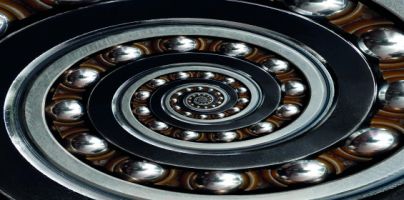When assessing the suitability and quality of bearings, it’s important to look beyond the external aesthetic. Many industries that use 440 grade hardened stainless steel bearings, for instance, may start to see signs of corrosion. While the instant reaction may be to assume this will cause the bearings to fail, this isn’t always the case. External corrosion may have no effect on the bearing’s internal rollability.
For salt water environments, there are marine grade alternatives that are very resistant to corrosion. Also known as 316 grade stainless steel bearings, these bearings can be used in many marine applications and will maintain their good looks for much longer than hardened steel alternatives. However, because this 316 steel cannot be thermally hardened, it has much lower load and speed ratings so is not suitable for high load applications.
Take this as an example. A customer is using bearings in rowing boat seats to allow the seats to move back and forth and make room for the rower’s legs. The bearings in these seats don’t have an easy life, with regular salt water exposure and some shock loading as rowers move the seat back and forth.
These bearings need to be hard. In this case, hardened 440 stainless steel bearings can handle the impact. The more corrosion resistant marine grade versions cannot and, for this application, cost rules out full ceramic bearings. The answer is use 440 grade bearings and allow some corrosion on the exterior surfaces, while protecting the internal surfaces with the correct amount of a water-resistant, corrosion-inhibiting grease.
Clearly, it is more important that bearings perform well rather than look good. There’s no doubt marine grade bearings have their place in the industry, as their corrosion resistant properties are essential for some applications. However, in the rowing boat example, marine grade bearings would wear far too quickly.
Of course, excessive corrosion will be problematic for some applications. In these instances, increased corrosion resistance is essential as offered by 316 grade steel bearings and non-metal bearings, such as ceramic or plastic. Small particles of corroded steel that find their way into the bearing, will cause accelerated wear to the ball and raceway surfaces. These particles will also mix with the grease to form an abrasive paste and will lead to bearing failure if ignored. If in doubt, check with a bearing specialist who can advise if performance has been compromised.
Choosing the right bearings means weighing up all the options. High impact loads will automatically rule out some materials. By assessing the operational environment, required longevity and loads that will be applied to the bearing, the best bearing may not necessarily be the one that remains looking beautiful for years.
For further information please visit: smbbearings.com

